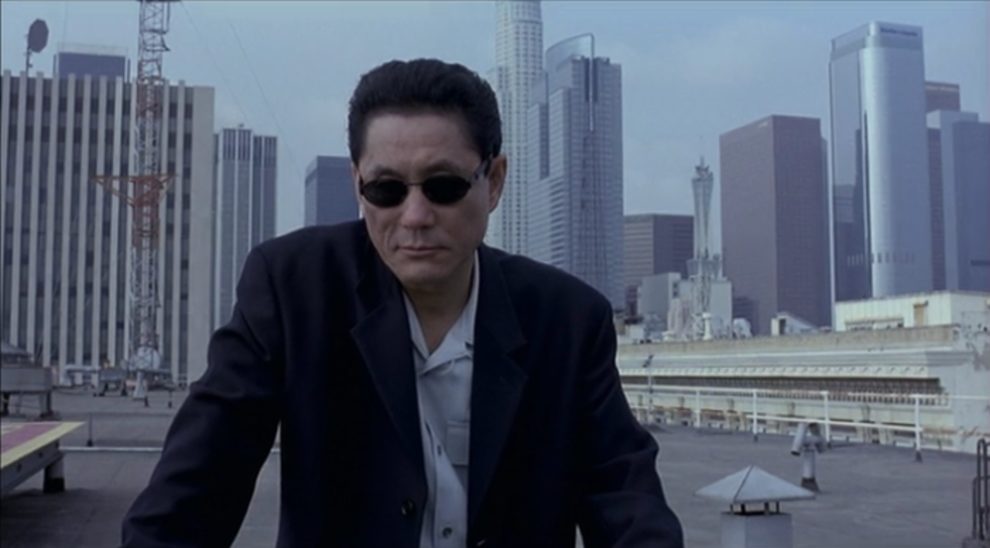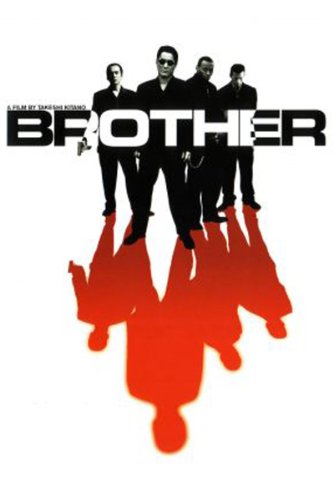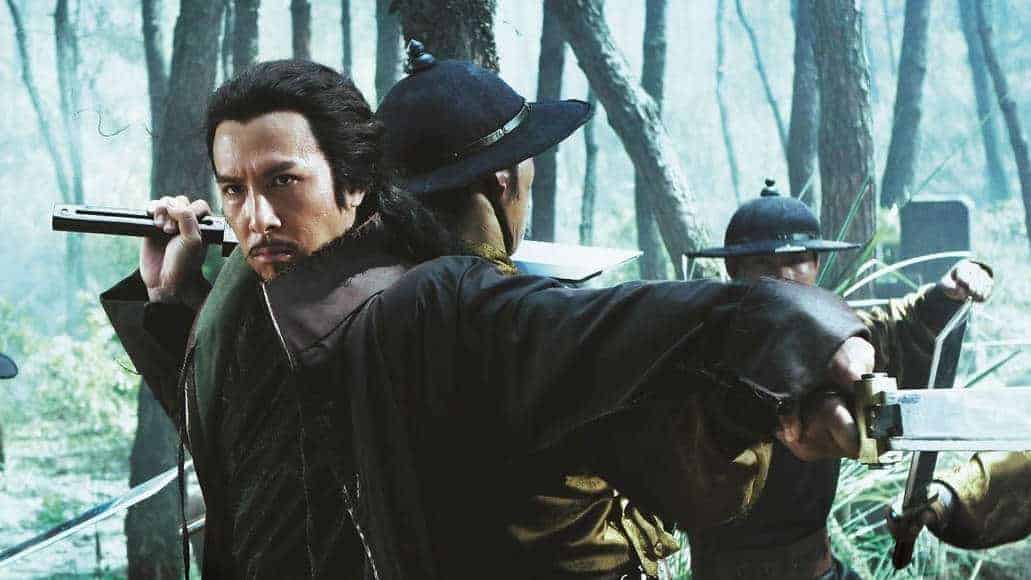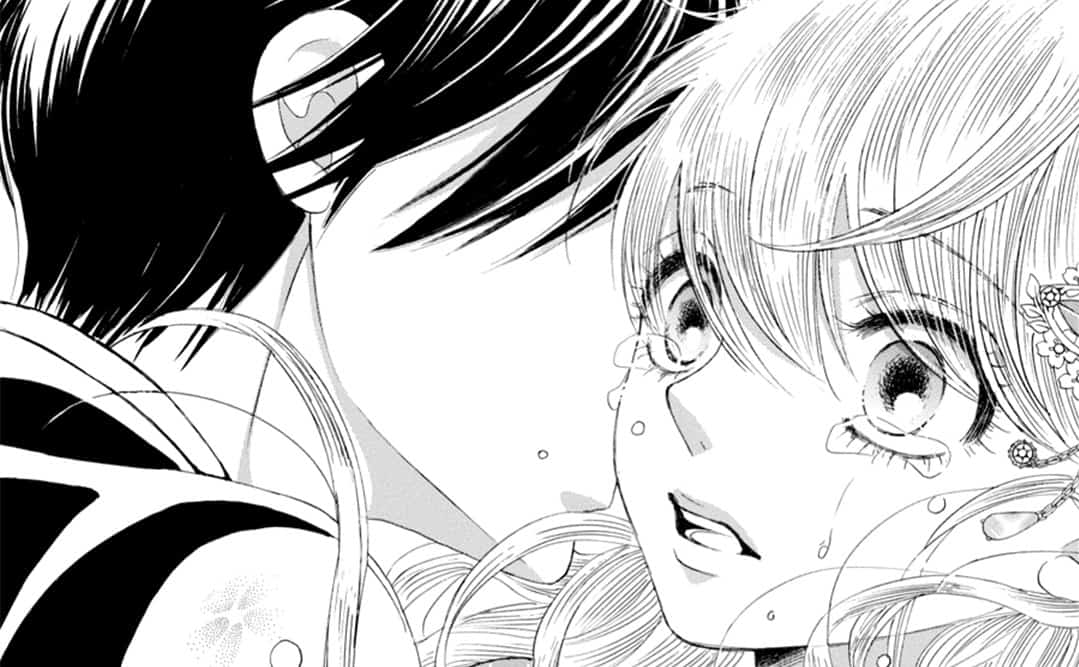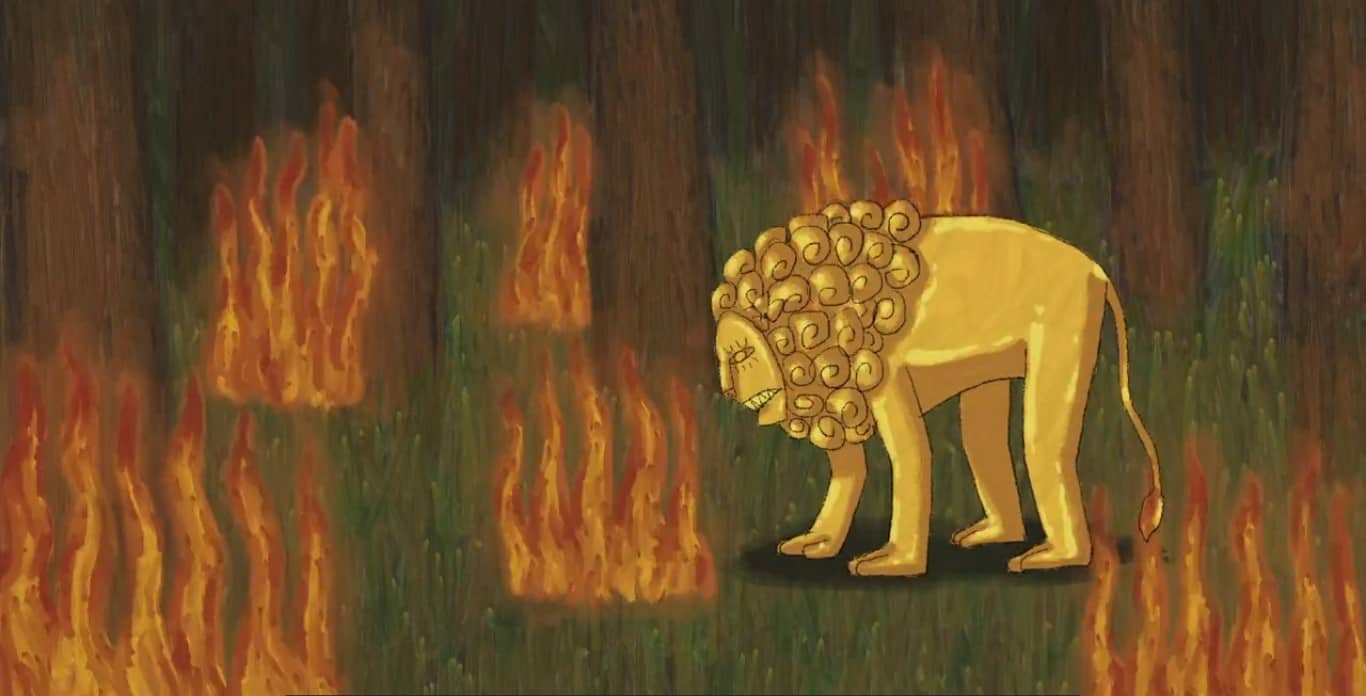Whereas Takeshi Kitano's ninth feature as a director seems like a return to the yakuza genre, and thus characters and themes he had already explored in works like “Sonatine”, “Violent Cop” and “Hana-Bi”, the project itself marks a fundamental turning point in the career of the filmmaker. For a long time, he and producer Masayuki Mori had been negotiating with US-American producer Jeremy Thomas for “Brother”, a film whose story would be set in both Japan and the USA, more specifically Tokyo and Los Angeles. As Thomas puts it, the greatest challenge was to make sure Kitano would have the same working conditions in the United States he was accustomed to from his works in Japan. Eventually, “Brother” began filming in late 1999 and was finished in early 2000, and thus became an entry into the director's filmography which seems to divide his fans to this day.
Buy This Title
on Amazon
For many years, Yamamoto (Takeshi Kitano) has been a loyal bodyguard for one of the most powerful clans in Tokyo, but despite his best efforts, he was unable to protect his boss from being assassinated. Humiliated by his inability to foresee the event and the eventual dissolution of the clan, he is furious when presented with the options of either joining the new syndicate or commit seppuku. When it is clear, Yamamoto will continue to disturb the newfound peace within the underworld, he becomes a nuisance to the new bosses, who decide to kill him. But with the help of his associate Kato (Susumu Terajima), he is able to leave the country and fly to the USA, where he hopes to find refuge with his half-brother Ken (Claude Maki).
However, the stories of Ken being a student prove wrong when Yamamoto arrives at his apartment in Los Angeles, realizing the money he had sent him over the years has been spent on drugs and becoming a dealer. After confronting Ken about his lies, and learning about what he does for a living, the former yakuza decides to lend a helping hand, fending off an associate from the Mexican mafia, and thus provoking a conflict with the mob. After Kato has also arrived in Los Angeles, Yamamoto decides to start his own family in the USA by taking over the district controlled by the Mexican mob.
On the surface, you might easily come to the same conclusion as many other fans of the director/actor, which is that “Brother” feels like a “Best of Kitano”. From the looks of the gangsters, the outbursts of violence as well as the subliminal themes of death and nihilism, there is a lot in his ninth feature that has already been presented in his previous features, which have been mentioned already. However, this approach ignores the shift in tone in “Brother”, a feature marking an important incision in Kitano's work, which would, until the start of the “Outrage”-series, leave the much treaded ground of the yakuza-genre. In many ways, “Brother” may also be regarded as a logical next step to “Sonatine” considering it is much more pessimistic and darker, a companion piece perhaps.
One of the many aspects supporting this idea may be the character of Yamamoto himself. Similar to Murakawa in “Sonatine”, he is also defined by his status as a soldier within the hierarchy of the Japanese underworld, so much he needs to implement the same system in the “new world” he is forced to go to. Both of them are aware of the kind of betrayal and death surrounding them, and their inability to stop the inevitable demise of their men and themselves, but while Murakawa simply awaits what is going to happen, Yamamoto becomes a decisive force in speeding up the process. Kitano plays this gangster character even more passive, with his eyes always hidden behind dark shades and his hands buried deep within his pockets, while he merely observes his empire being established and later falling into pieces. Whereas his other men, also Kato and Ken, are defined by the actions and their decisions (fatal as they may be), he cannot be touched and remains distant, albeit for his relationship to Denny played by Omar Epps, who seems to have found some kind of understanding with the gangster despite the language barrier.
In the context of the gangster genre itself, “Brother” is perhaps best viewed as the antithesis to the American gangster epic, most notably Brian De Palma's “Scarface”. While both features tell stories of outsiders making their own version of the American Dream come true, Al Pacino's Tony Montana engages actively in the consumerist mentality of 1980s America, accumulating property, businesses and, of course, drugs in excessive quantities. Although some of his underlings, like Ken or Denny, are driven by money and status to some extent, Yamamoto has ceased to have any kind of ideology motivating his actions. Even life and death have lost their meaning to him, which may be explained by his connection to the yakuza, but at the same time the link seems to be branded deeper into his persona. In the end, presenting this version of the American Dream, as a vapid illusion is what is also at the core of “Brother” as all the other “outsiders” – Mexicans, Italians and African-Americans – are hunting for something that is no longer there, and maybe has never been there in the first place.
Apart from the acting and the themes, there are two more features which make “Brother” stand out and exceed being a mere repetition of what the director has done previously. The first element is the combination of Kitano's editing and Katsumi Yanagijima's cinematography, which echoes their work in the director's other features, most notably, “Sonatine”. The versions of Los Angeles and Tokyo presented are void of any specific indicator making them distinct, which coincides with the idea of Yamamoto basically repeating the same vicious cycle he has known all of his life, except for him becoming a driving force behind it. Additionally, this awareness of death, a sort of melancholy you might say, can be felt throughout Joe Hisaishi's score, with the jazzy undertones and the piano tunes supporting these notions of the empty dream and the characters being unable (or even unwilling) to stop the inevitable.
In conclusion, “Brother” is not a repetition or “best of” of Takeshi Kitano's previous works. Indeed, the director/actor presents the logical conclusion to the stories and characters he has explored in the past, showing a much more cynical version of them in his ninth feature. At the same time, Kitano shows the gangster figure as one who cannot help taking the cycle of death and destruction with him wherever he goes, unable to stop what he perceives as inevitable. Aside from the performances, the brilliant cinematography and Joe Hisashi's score, one of the best works of the composer, make “Brother” an important work in the director's career, or, at the very least, a significant incision.


